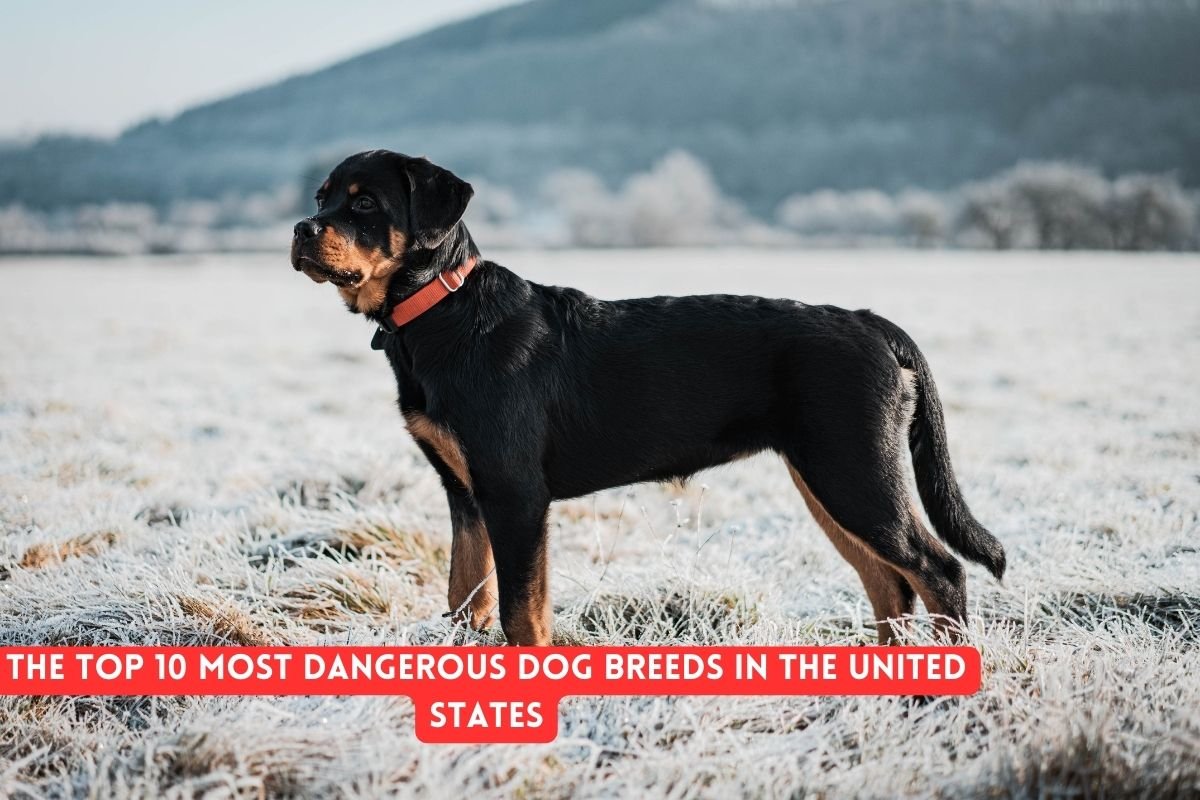At our kennel, we prioritize transparency and safety in dog ownership. While every dog is unique and can make a wonderful companion with proper training and socialization, it’s essential to acknowledge breeds with potential tendencies towards aggression or territorial behavior. Understanding the characteristics of different breeds can help potential owners make informed decisions about which dog best fits their lifestyle and capabilities. Responsible ownership, including proper training, supervision, and understanding of a dog’s needs, is essential for preventing incidents and fostering a positive relationship between dogs and their owners.
Pit Bull Terrier
Pit Bull Terriers often make headlines due to their strength and muscular build. While they can be affectionate and loyal family pets, they have a history of being bred for dog fighting, which may result in aggressive behavior towards other animals.
Rottweiler
Rottweilers are known for their protective nature and strong guarding instincts. Without proper training and socialization, they may exhibit territorial behavior, especially towards strangers entering their territory.
German Shepherd
German Shepherds are intelligent and versatile dogs commonly used in police and military work. While they are loyal and trainable, they require consistent leadership and socialization to prevent potential aggression.
American Bulldog
American Bulldogs are powerful and muscular dogs with a protective nature. Without proper training and socialization, they may display dominance and aggression, particularly towards unfamiliar animals.
Bullmastiff
Bullmastiffs are large and imposing dogs originally bred to guard estates and property. While they are affectionate with their families, they can be wary of strangers and may exhibit protective behavior if they perceive a threat.
Siberian Husky
Siberian Huskies are energetic and independent dogs known for their endurance and strength. Without sufficient mental and physical stimulation, they may become bored and engage in destructive behaviors, such as digging or escaping.
Alaskan Malamute
Alaskan Malamutes are powerful sled dogs bred to haul heavy loads over long distances. They have a strong prey drive and may exhibit aggression towards smaller animals if not properly socialized and trained.
Doberman Pinscher
Doberman Pinschers are intelligent and loyal dogs often used in protection work. While they can be affectionate with their families, they may display aggression towards perceived threats if not adequately trained and socialized.
Boxer
Boxers are energetic and playful dogs known for their muscular build and boundless enthusiasm. Without proper training and socialization, they may exhibit stubbornness and dominance, leading to potential conflicts with other dogs.
Akita
Akitas are strong and dignified dogs with a history of being bred for guarding and hunting. They are fiercely loyal to their families but may be wary of strangers and display aggression towards unfamiliar animals if not properly socialized.
In conclusion, while the breeds mentioned above have the potential for aggression, it’s important to remember that individual temperament and behavior are influenced by factors such as upbringing, training, and socialization. Responsible ownership, including proper training, supervision, and understanding of a dog’s needs, is essential for preventing incidents and fostering a positive relationship between dogs and their owners.
FAQs
Are all dogs of these breeds dangerous?
Not necessarily. Proper training, socialization, and responsible ownership play significant roles in a dog’s behavior.
Can aggressive behavior be prevented in these breeds?
Yes, early socialization, positive reinforcement training, and consistent leadership can help mitigate potential aggression.
Are there other factors besides breed that contribute to a dog’s behavior?
Yes, genetics, individual temperament, environment, and past experiences all influence a dog’s behavior.
Should potential owners avoid these breeds altogether?
Not necessarily. With proper care and understanding of their needs, these breeds can make loving and loyal companions.
What should I do if I encounter an aggressive dog?
Stay calm, avoid eye contact, and slowly back away without turning your back on the dog. If attacked, protect your vital areas and seek medical attention immediately.
